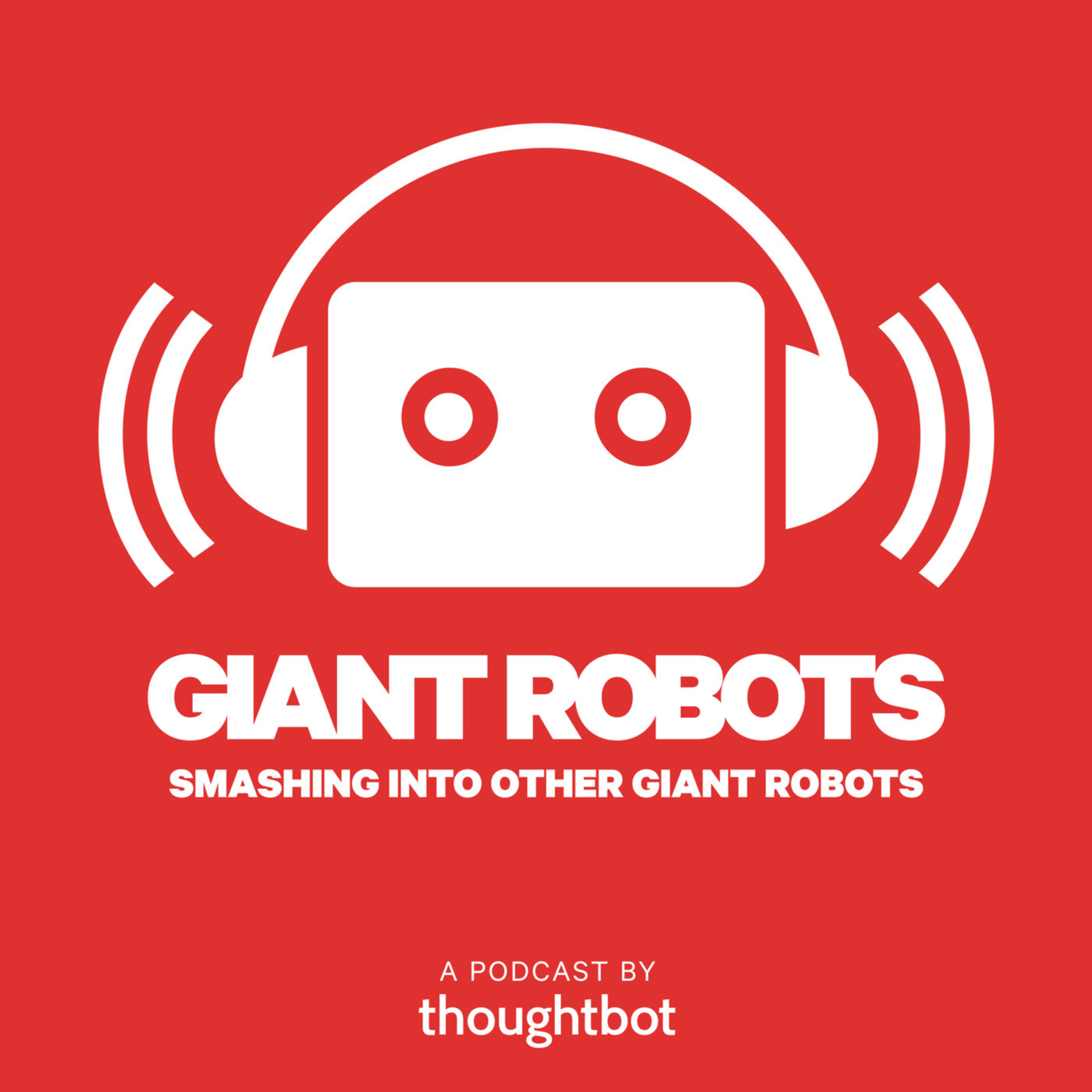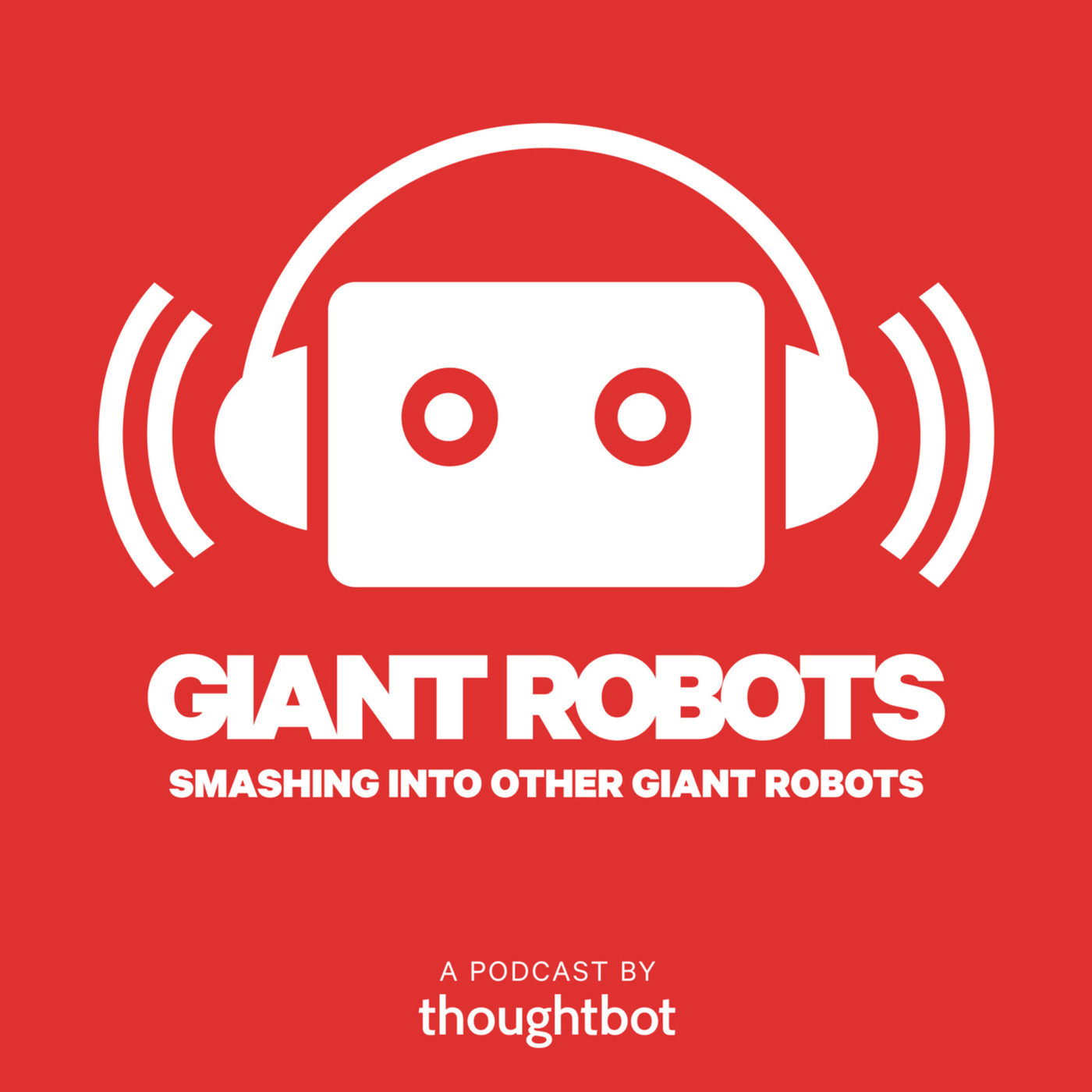Giant Robots Smashing Into Other Giant Robots
Episodes
-

67: The Data Optimist
September 22nd, 2013 | Season 2 | 29 mins 41 secs
Ben Orenstein and Hilary Mason, Data Scientist in Residence at Accel Partners, talk about Data Science, Bitly and Cheeseburgers.
-

66: With Great Power Comes Great Responsibility
September 15th, 2013 | Season 2 | 40 mins 18 secs
Ben talks with Anthony Eden about DNSimple, programming languages and code retreats.
-

65: No! Videos Private!
September 8th, 2013 | Season 2 | 38 mins 25 secs
On this episode Ben talks with Chris Savage and Brendan Schwartz about Wistia
-

64: Wistfully Into the Air
September 1st, 2013 | Season 2 | 36 mins 18 secs
In this episode of Giant Robots Ben talks with Des Traynor about intercom, concise communication. blogging and customer outreach.
-

63: Knowledge Bomb!
August 25th, 2013 | Season 2 | 48 mins 37 secs
Ben and Chad discuss mentoring, job hunting tips and FAQ
-

62: Family Business
August 18th, 2013 | Season 2 | 31 mins 39 secs
In this of episode of Giant Robots, Ben speaks with Natalie Nagele and Ilya Sabanin about Wildbit, Beanstalk, and work flow.
-

61: Having the Craic with Paul
August 11th, 2013 | Season 2 | 34 mins 56 secs
In this episode Paul and Ben talk about tito, funconf, and organizing conferences.
-

60: Deep Dive
August 4th, 2013 | Season 2 | 34 mins 1 sec
In this week's episode Ben discusses effective business practices and advice for optimal page design with special guest Patrick McKenzie.
-

59: Nowhere to Hide
July 28th, 2013 | Season 2 | 25 mins 52 secs
In this episode, Ben Orenstein speaks with thoughtbot CTO Joe Ferris about the technical interview process at thoughtbot, and more.
-

58: A Thousand Neckbeards
July 21st, 2013 | Season 2 | 31 mins 12 secs
This week Ben Orenstein, Pat Brisbin, and Mike Burns talk about Haskell, Linux, functional and dynamic programming, Conway's Game of Life, and much more.
-

57: Delayed Gratification
July 14th, 2013 | Season 2 | 28 mins 10 secs
In this episode, Ben Orenstein is joined by Michael Klett, Co-founder and tech lead of Chargify. Ben and Michael discuss the evolution of Chargify and bumps along the way, underwear subscriptions, Michael’s transition from hardware to software, negativity in the Rails community, slow tests, and much more.
-

56: Code in a Bubble Bath
July 7th, 2013 | Season 2 | 36 mins 36 secs
In this episode Ben Orenstein is joined by Alex MacCaw, creator of Spine, formerly of Twitter, and now a developer at Stripe. Ben and Alex talk about travel, writing, code, and couch surfing.
-

55: The Value of Flow
June 30th, 2013 | Season 2 | 42 mins 29 secs
In this episode Ben Orenstein speaks with designer and founder of Authentic Jobs, Cameron Moll, about Authentic Jobs, design, the value of flow and family, and much, much more.
-

54: Build your stuff on the side and have a good time
June 23rd, 2013 | Season 2 | 25 mins 22 secs
In this episode, Ben Orenstein is joined by 17 year old Jack Kaufman, author of The Found a Business Book. Ben and Jack discuss Jack's inspiration for the book and how he got all his interviews, the other opportunities it's led too, the common themes he uncovered in his interviews, the differences between those who got funding and bootstrappers, working on the book while in highschool, marketing he's doing, his plans for the future, the issue with college computer science programs, his fears about the future, and much more.
-

53: Not everything needs to be extracted
June 16th, 2013 | Season 2 | 38 mins 29 secs
In this episode Ben Orenstein is joined by Yehuda Katz and Tom Dale from Tilde. They discuss bootstrapping a business and the model behind Tilde, their breakdown of product development and consulting, and how they all met. They also talk about designing APIs and frameworks that people actually want to use, how teaching helps them be better framework developers, how they can beat the competition, how supporting multiple languages and frameworks can ruin your app's experience, the big surprises as they've launched, Ember.js' push to 1.0 and beyond, the difference between Ember.js and Backbone.js and why JavaScript matters, and much more.
-

52: You look really fancy in your tuxedo
June 9th, 2013 | Season 1 | 58 mins 19 secs
In this special episode, number 52, and our 1 year anniversary episode, recorded at RailsConf 2013, Ben Orenstein is joined by Ruby and Rails core team member Aaron Patterson, thoughtbot CTO Joe Ferris, and a live studio audience. The trio discuss Rails 4, observers, callbacks, dubstep, namespaces, Scheme, functional programming, thread safety in Rails, what it would take to remove callbacks from Rails and why you would want to do it, what should be in our anniversary episode, dealing with Rails security issues, why Aaron likes to work on Rails, meeting people's expectations, Vim, intuitive software, and so much more.

